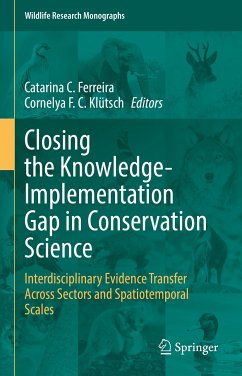
The Ecology of Invasions by Animals and Plants (eBook, PDF)
Versandkostenfrei!
Sofort per Download lieferbar
36,95 €
inkl. MwSt.
Weitere Ausgaben:

PAYBACK Punkte
18 °P sammeln!
Elton sought to articulate more explicitly his vision of an entire field of invasion science. The 1958 book, aimed at an educated lay audience, was almost wholly descriptive, dominated by striking examples of the nature and scope of particular invasions beginning with the seven examples detailed in Chapter 1. From the materials in the proof copy and other sources, we can imagine a new edition would also have targeted biologists and been somewhat more technical and prescriptive. In autobiographical notes he penned near the end of his life, Elton wrote regarding EIAP, "This whole subject has dee...
Elton sought to articulate more explicitly his vision of an entire field of invasion science. The 1958 book, aimed at an educated lay audience, was almost wholly descriptive, dominated by striking examples of the nature and scope of particular invasions beginning with the seven examples detailed in Chapter 1. From the materials in the proof copy and other sources, we can imagine a new edition would also have targeted biologists and been somewhat more technical and prescriptive. In autobiographical notes he penned near the end of his life, Elton wrote regarding EIAP, "This whole subject has deep significance for the study of plant and animal communities and their balance (or unbalance),"19 and indeed many of the reprints and notes refer to interactions among species and community-wide effects.
Dieser Download kann aus rechtlichen Gründen nur mit Rechnungsadresse in A, B, BG, CY, CZ, D, DK, EW, E, FIN, F, GR, HR, H, IRL, I, LT, L, LR, M, NL, PL, P, R, S, SLO, SK ausgeliefert werden.












